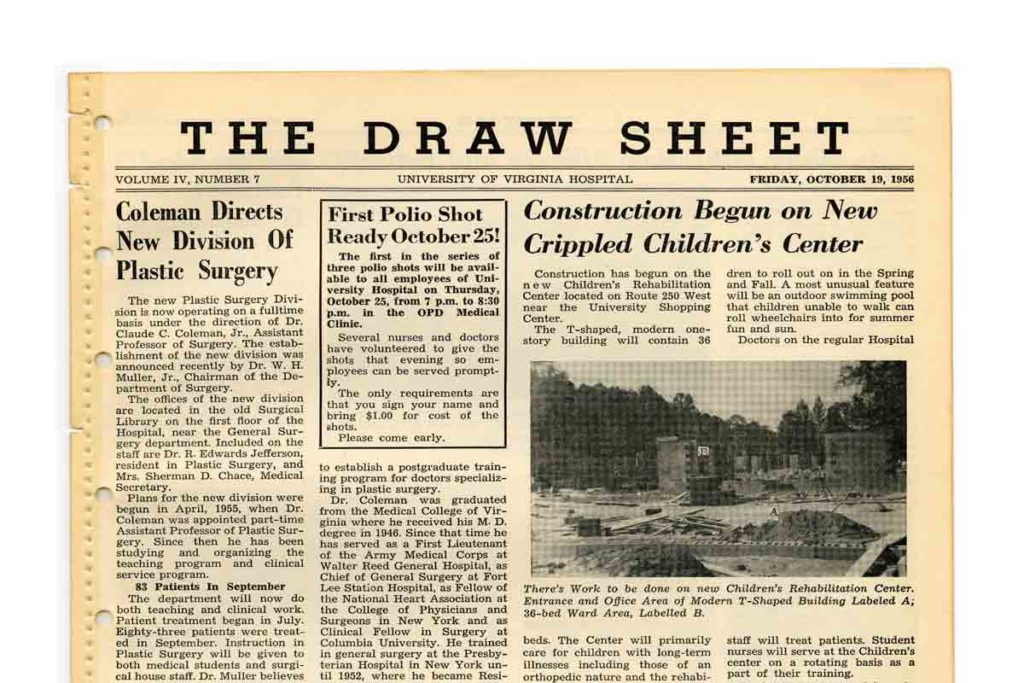During a fun day swimming in a pond, my mother-in-law caught polio. This was the 1940s. She spent a year recovering in her bedroom. Every day, her dad moved her paralyzed legs to get them working again.
Back in those days, parents rightly feared letting their children go outside, especially in the summer when polio cases soared. Scary fact: By the late 1940s, polio disabled more than 35,000 people each year in the U.S., according to the U.S. Centers for Disease Control and Prevention.
Vaccines Wipe Out Fear of Crippling Polio
Then came 1955 — the year of the groundbreaking polio vaccine. Parents could breathe a sigh of relief. And by 1979, parents no longer gave polio a second thought. That year, the U.S. was officially polio-free.
Until now. Earlier this month, we learned of a polio case in New York — the first in the U.S. in nearly a decade. Unvaccinated, this young adult was reported to have paralysis from the polio virus.
Do Parents Need to Worry About the Polio Case in New York?
When I heard about this polio case in New York, it made me think:
- Are we going back in time?
- Are we once again going to have lots of children crippled by a contagious disease with no cure?
- Will the vaccine I got as a child more than 40 years ago still protect me against the polio virus?
To answer these questions, we turned to UVA Health infectious disease expert William Petri, MD. He’s our trusted guide on all things vaccine-related. He also happens to be chair of the World Health Organization’s Polio Research Committee.
Q: In recent years, we’ve had outbreaks of measles. Can we expect the same with polio because of the New York case?
No. Polio is close to being eradicated worldwide. We’ve had less than 20 cases of paralytic polio in the last two years. Plus, we’ve all been vaccinated against polio as children. The polio case in New York happened because of two rare occurrences in the same person. It occurred in an adult who:
- Had not been vaccinated as a child
- Was exposed to a polio vaccine virus that went back to being contagious by mutating
Q: Most of us got a polio vaccine as a child. Does its protection wear off? Do adults need to get a booster polio vaccine?
The polio vaccine we received as a child doesn’t need to be boosted as an adult. But you need a booster if you’re traveling overseas to:
- Countries such as Pakistan and Afghanistan with endemic wild polio
- Countries where the vaccine with a live virus is causing infections, such as parts of Africa
Q: What’s the most important takeaway from this polio case in an unvaccinated young adult in New York?
Cases of polio are rare. But they still happen in other countries that use a vaccine with a live but weakened strain of the virus. In the U.S., we only use a vaccine with an inactive virus. So you can’t get polio from our type of vaccine. But a person from another country can bring polio here. This is how the unvaccinated person in New York got polio and developed paralysis.
Get Protected Against Polio
Need to Catch Up on Vaccines for Yourself or Your Family?
A Polio Case With a Happy Ending
With no polio vaccine to protect my mother-in-law as a child, she spent a year in her bedroom, longing to go play with the children outside her window. But she was lucky. Polio left her with only a limp that she hid with an insert in her shoe.
Her story always stuck with me. And it’s why I never hesitate to vaccinate myself and her grandchildren when a new, or old, virus threatens our health. Even with this polio case in New York, I don’t need to worry.
